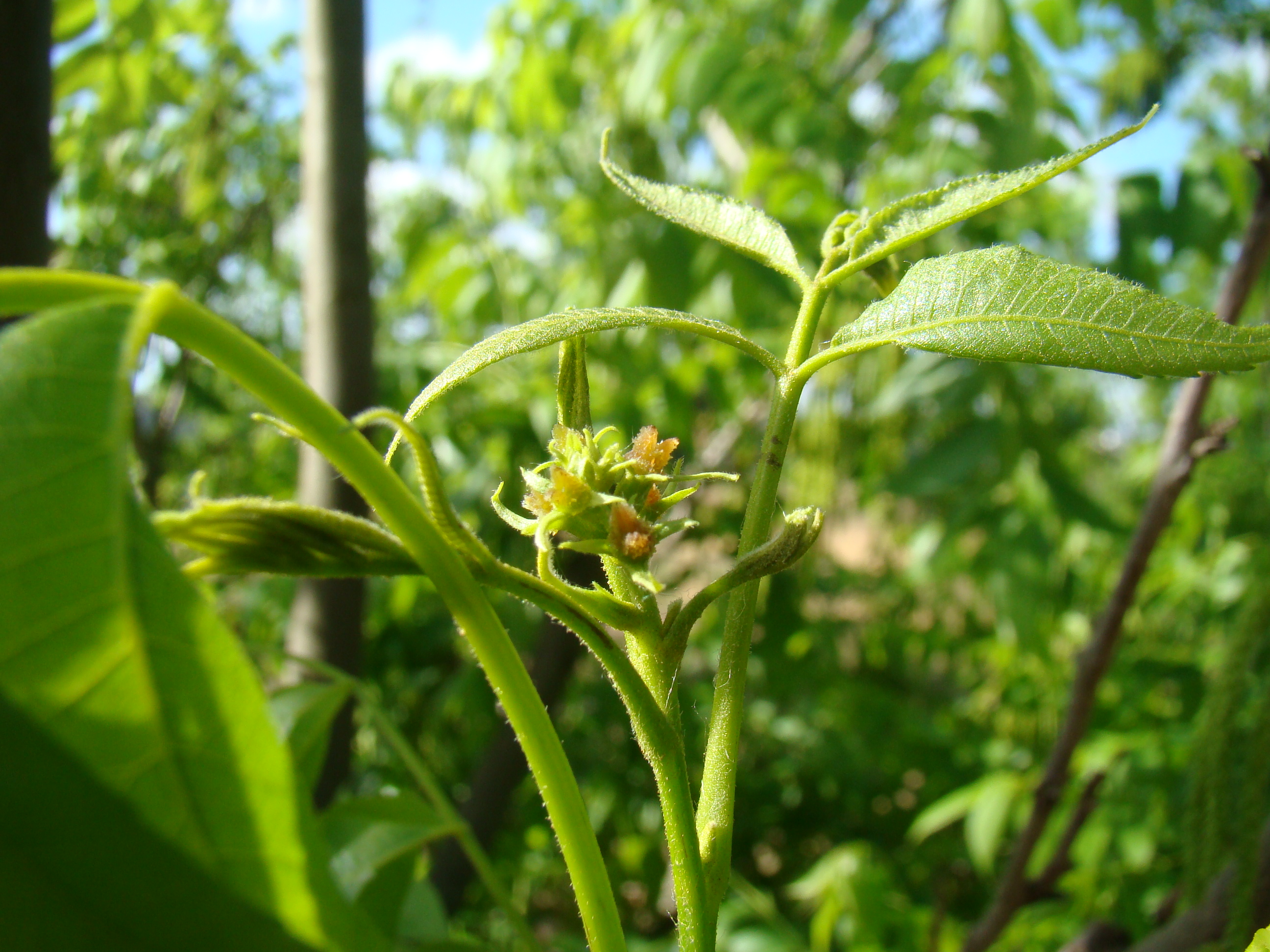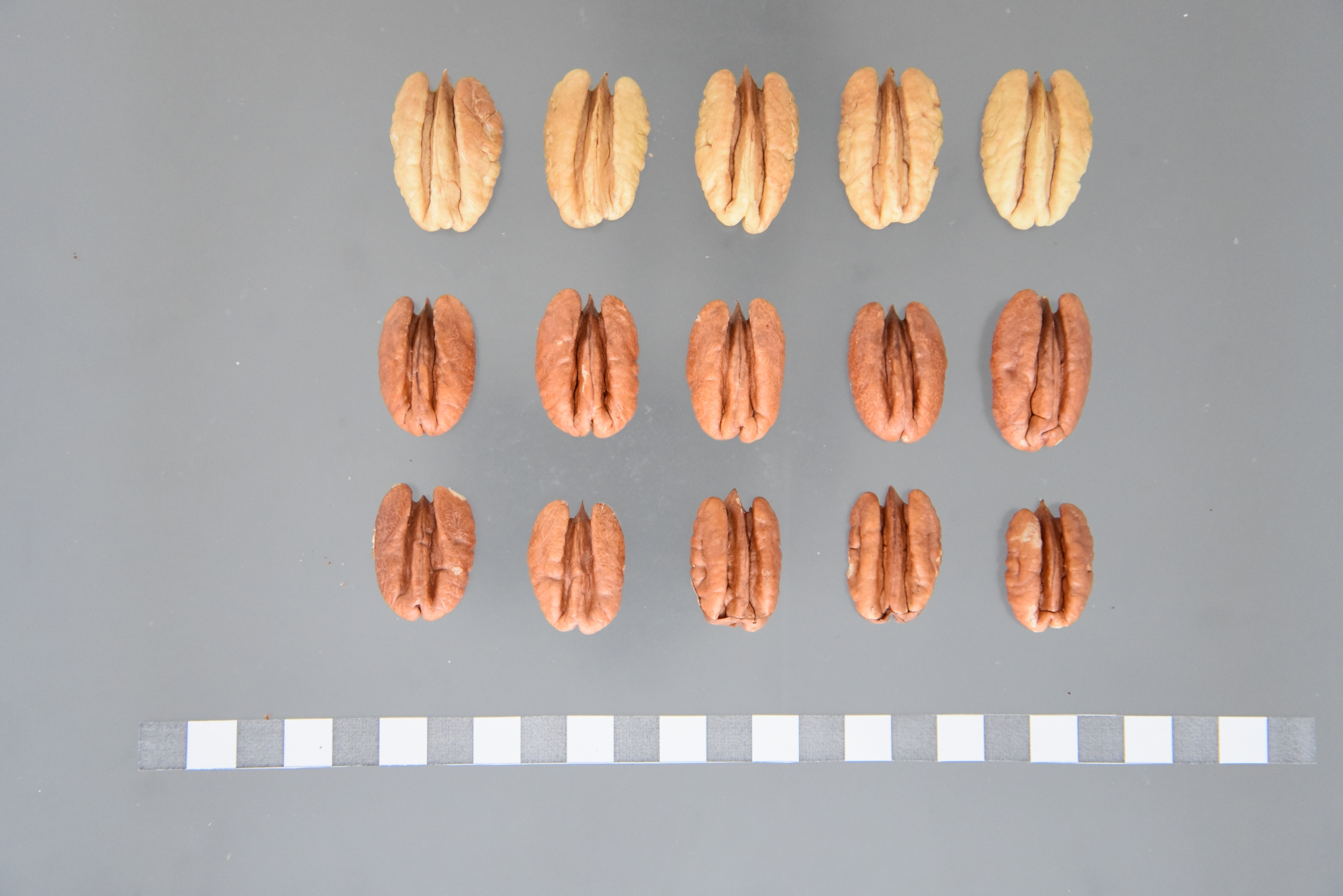Pecan tree
 General information
General information
The Pecan tree (Carya illinoensis Koch) is a popular crop in the Mediterranean Basin due to its low requirement of chill hours and health treatments. Its fruit is a nut (Pecan nut) which is an excellent source of energy due to its high content in very healthy unsaturated fatty acids as well as fibre, vitamins, minerals and proteins.
The Pecan tree is a monoecious species with unisexual flowers (male and female) spread separately in the tree. Additionally, the flowers with stamens (male) and the flowers with pistils (female) ripen at different times while in the tree (dichogamy). When the release of the grain of pollen takes place before the stigma of the female flower becomes receptive, the tree will experience protandry. However, if the flowers with pistils are receptive before the grains of pollen have ripened, the tree will experience protogyny.
With the view of using this crop for commercial purposes, it is essential to collect technical information relating to the varieties that are better adapted to the area as well as the flowering schedules of said varieties in order to synchronise the pollen’s ripening time with the female stigmas and ensure adequate pollination. In order to obtain successful fruit setting it is necessary to have at least two varieties with the same flowering times within the same plantation.
 Testing at CICYTEX
Testing at CICYTEX
Field testing with this species began in Finca La Orden back in 2010 with the purpose of determining the agronomic behaviour and the quality of the fruit on Extremadura’s soil under its particular climate characteristics. This test included a collection of 24 commercial Pecan tree varieties. At present, this is the only one existing in Spain. The Pecan tree is original from the United States and yields high-quality nutritional and functional fruits, also enjoying an increasingly high demand in national and international markets.
CICYTEX’s projects also focus on setting a ripening schedule, which will allow fruit farmers to select the varieties according to their selling and commercialisation objectives, based on consumer and markets preference and demand. Additionally, annual productions, average weight of the products, kernels (edible part of the nut) and the yields of the various varieties are under study.
In summary, these projects focus on the study of the agronomic behaviour and the quality of the fruit from several varieties of the Pecan tree in order to select the varieties that are best adapted, while they also highlight the value of the Pecan tree in terms of nutritional characterisation to companies and end consumers.






